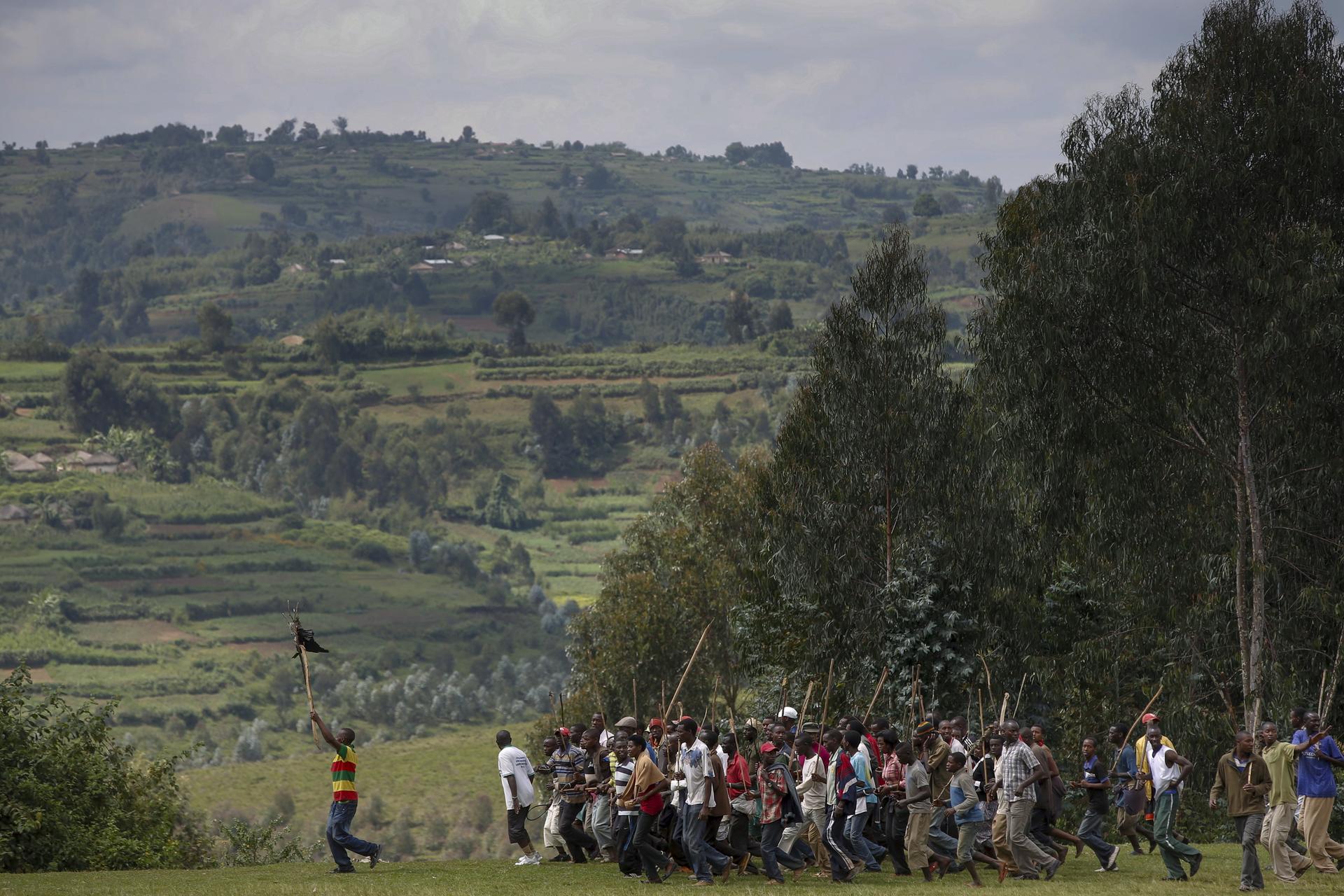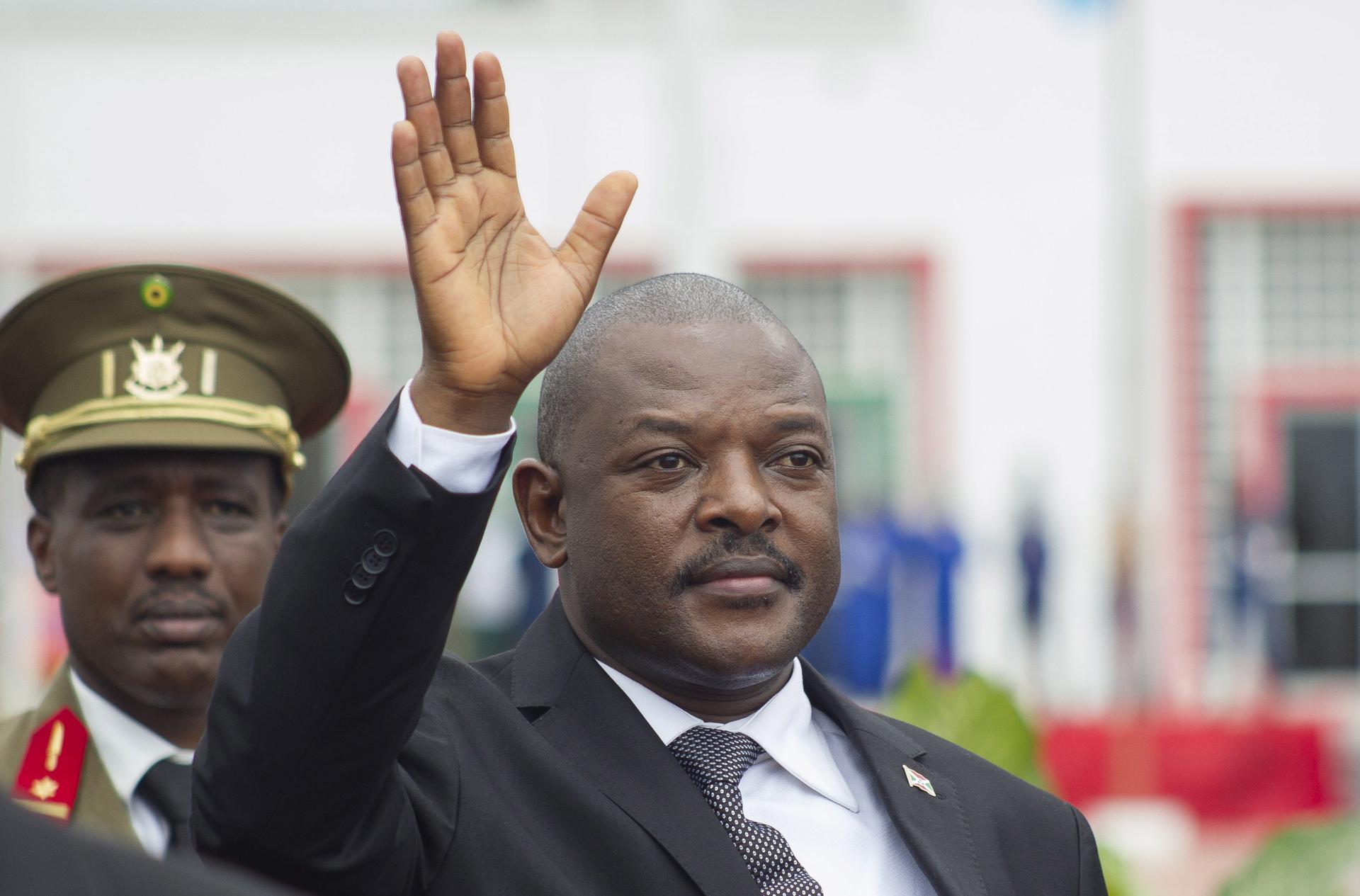Burundi schoolkids deface portraits to defy president
Burundi's President Pierre Nkurunziza bids farewell to his South African counterpart Jacob Zuma as he departs at the airport after an Africa Union-sponsored dialogue in an attempt to end months of violence in the capital Bujumbura, February 27, 2016.
A quiet protest movement is spreading in Burundi's schools, where hundreds of students have been suspended in recent weeks for defacing pictures of President Pierre Nkurunziza in textbooks.
Scribbling on the presidential portraits contained in government-issue study guides is seen as an act of silent resistance against a regime that clings to power despite more than a year of deadly protests.
Entire classes have been suspended for the defiant doodles, 11 have been charged with insulting the head of state and at least four were this week arrested and taken into police custody.
And yet the movement is growing as the government has struggled since early May to stem the acts of "incivility" that security ministry spokesman Pierre Nkurikiye blames on "political manipulation".
The phenomenon has spread from the classroom to social media where users compete to lampoon Nkurunziza, mocking up images of him as a pirate, monarch or devil, or changing his name — which means "good news" in Kirundi — to Nkurumbi or "bad news."
The ridicule infuriates Nkurunziza's supporters, some of whom say the teasing amounts to treason. But for parents of the suspended school kids the arrests are an overreaction.
Schools in Burundi commonly have fewer than 30 textbooks shared by as many as 200 pupils, making it difficult to identify the classroom political artists.

"Nobody has their own book," said the parent of one suspended student.
Emmanuel Niyungeko, the Nkurunziza loyalist who governs Muramvya where the 11 students were charged on June 3, justified the harsh punishment by saying the king is second only to God.
"The king of Burundi today is President Nkurunziza," he said.
Some argue the crackdown has encouraged the defiance.
Alice Hakizimana, a well-known television host who now lives in exile, wrote on her Facebook page that "blind repression" has turned something "that began with a handful of schoolchildren into a national protest movement".
Even some inside the regime believe the classroom scribblers are being badly handled.
"The way this crisis is being managed is the real national disaster," said one member of the ruling party who did not want to be named.
Burundi's political crisis began when Nkurunziza decided to run for a third-term last year, a move his opponents said was unconstitutional. Street protests and a failed coup followed, but in July Nkurunziza was re-elected.
The sporadic violence has not ceased and it is thought that over 500 people have died while around 270,000 have fled the country, becoming refugees.
Many opposition leaders as well as members of civil society and the independent media have gone into exile.
We want to hear your feedback so we can keep improving our website, theworld.org. Please fill out this quick survey and let us know your thoughts (your answers will be anonymous). Thanks for your time!
